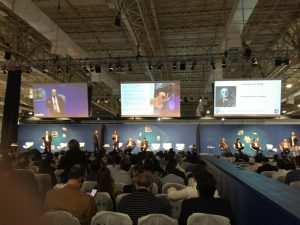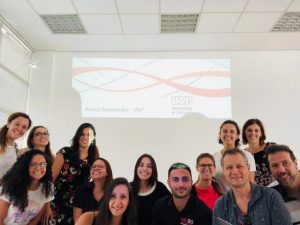
 Last March, with funding from the Santander Mobility Grant facilitated by the Bournemouth University Fundraising and Alumni Relations team, I was fortunate enough to be able to travel to the University of Sao Paulo (USP) in Brazil. There I met Prof. Carlos Bandeira de Mello Monteiro and his research team, who have published extensively in Virtual Reality rehabilitation, the area of my PhD. During my time at USP, I had the opportunity to present on our research at ORI, and discuss new research topics and methodologies with world renowned academics in related fields.
Last March, with funding from the Santander Mobility Grant facilitated by the Bournemouth University Fundraising and Alumni Relations team, I was fortunate enough to be able to travel to the University of Sao Paulo (USP) in Brazil. There I met Prof. Carlos Bandeira de Mello Monteiro and his research team, who have published extensively in Virtual Reality rehabilitation, the area of my PhD. During my time at USP, I had the opportunity to present on our research at ORI, and discuss new research topics and methodologies with world renowned academics in related fields.
This grant also allowed me to attend the Global Summit of Telemedicine and Digital Health and listen to international leaders in e-Health, a conference I would not have been able to attend without the travel award. This annual meeting is the largest meeting of digital health scientists in South America. Its message was: “Healthcare is in many ways being practiced as it has been for millennium, as ‘Sick Care’ or ‘Reactive Care’, in which both patient and the doctor are reacting to the adverse disease, injury or symptoms. This reactive approach to healthcare is both expensive and, to some degree, ineffective in meeting the needs of today’s population, from the healthiest individual to the complex chronically ill. Thus, it is essential to move from ‘Reactive care’ to ‘Proactive care’ in the sense that action is taking before symptoms manifest.”
In summary, my Santander Mobility experience accentuated the importance of networking with a group of people from different universities as the contact with these encouraging academics offered invaluable information for my research. Since my visit, I have maintained my relationship with the academics at USP and currently have a joint publication under review at the Journal of Cyberpsychology, Behaviour and Social Networking on the topic of Virtual Reality Interventions for Health and Well-Being in the Elderly.


